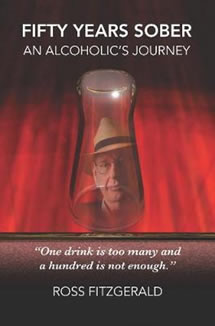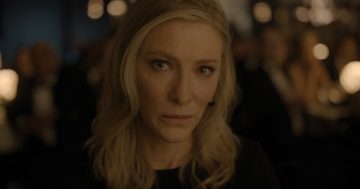Reviewed by Rama Gaind.
By Ross Fitzgerald, Hybrid Publishers, $27.50.
 It’s realism at its starkest. “The reality is that if I hadn’t stopped drinking and drugging at twenty-five years of age, I wouldn’t have made twenty-six”. This is his 42nd book and an updated edition of his 2010 book My Name is Ross.
It’s realism at its starkest. “The reality is that if I hadn’t stopped drinking and drugging at twenty-five years of age, I wouldn’t have made twenty-six”. This is his 42nd book and an updated edition of his 2010 book My Name is Ross.
Ross Fitzgerald, an Emeritus Professor of History and Politics at Griffith University, has been a successful academic, writer, reviewer and commentator in the media. He acknowledges that it remains a daily battle to remain sober.
Even though this is a sternly candid and cherished portrayal of his captivating life – his achievements as well as his tribulations – the veracity of his proficiencies command respect.
Even though he has now been successful in not drinking alcohol or using drugs for 50 years, the author still calls himself an alcoholic in this revised edition. He pays inclusive tribute to the role that’s been played by Alcoholics Anonymous in ‘keeping him on the wagon’. His involvement in AA has become a way of life, with him still attending regular meetings. A key aspect of AA’s therapeutic process involves what can be ‘termed the mechanism of surrender. Instead of telling alcoholics to use their willpower, control their drinking or pull up their socks, AA suggests that a much more efficacious strategy is to admit that, at least in relation to alcohol, they are beaten’.
For Ross Fitzerald, the rationale is: “Since I stopped drinking and drugging on January 26, 1970, Alcoholics Anonymous has continued to teach me that for an alcoholic one drink is too many and 100 is not enough. Indeed, the trick for an alcoholic like me is not to pick up the first drink, and to keep attending AA meetings”.
By turns depressing, tongue-in-cheek, worrying and occasionally comic, this is a vital abstemious read.






